A common question I get asked is on is it too late to become a footballer.
Now while some will be quick to say yes.
The truth is it really isn’t.
No matter how old you are.
For as cliche as that sounds.
Why is that?
Well, there is plenty of reasons for it.
Of which I will delve into deep in this post.
I will also go over some examples of footballers who have shown that it never is.
So without further ado let’s get right into it.
Table of Contents
Key takeaway:
- Age is not a barrier to becoming a footballer: While starting a football career at a young age is typical, it is never too late to pursue your dreams of becoming a professional footballer.
- Factors to consider when starting later: Physical fitness and conditioning, experience and skill level, opportunities and pathways, and mental determination and commitment are important factors to consider when starting a football career later in life.
- Challenges faced by late-bloomers: Late-bloomers may face competition from younger players, physical demands and injury risks, and less time to develop technically.
- Tips and strategies for pursuing a football career later: Finding the right training program and coaching, networking and showcasing skills, staying dedicated and persistent, and setting realistic goals and expectations are key strategies for pursuing a football career later in life.
Can You Become a Footballer at Any Age?
Whether you are in your 80’s or have just started walking.
Which I highly doubt for you to be here reading this.
You can become a footballer.
Now of course it’s important to stay realistic on the level in which you can reach.
For instance, if you are a veteran then trying to play for Real Madrid isn’t really realistic.
Especially when you consider they don’t sign old players.
But that is just an example.
And the main thing is you can.
However, how can you become one at any age.
Well, firstly it’s all about assessing your situation and working out how far you are from becoming one.
If you’re in good shape, then becoming a footballer should be as easy as applying for local sides.
In that case, you could even be playing officiated football in 2-4 weeks.
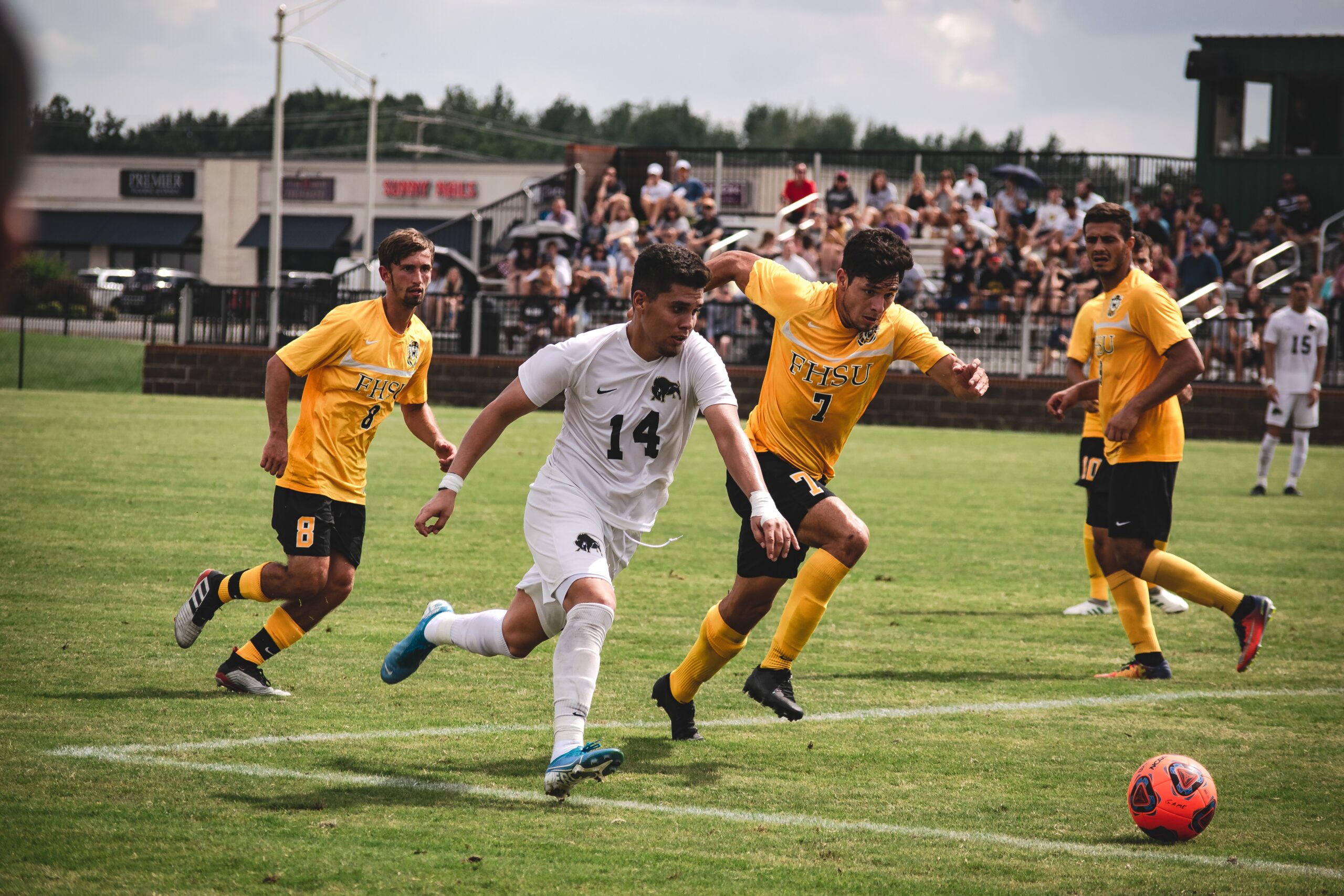
However if on the other side, you are out of shape and don’t have the fitness.
Then becoming a footballer will take a little bit more work.
With you needing to do work off the pitch in order to get yourself in a position where you can competently play football.
The other question that you need to ask.
What I was alluding to above is your skill and experience.
Something I talk about a lot through many posts on this site.
Is important to practice when it comes to the sport.
As that will dictate how ready you are for the level at which you want to play.
When I first started playing, I had quite literally not played any football.
Apart from a bit of lunchtime kick-about stuff with schoolmates.
So I joined a local side, that was at a very low level.
This meant I could get an easy introduction to football.
And it didn’t put that much pressure on me.
Plus since I was around 9 at the time.
The goal was mostly to have fun.
Now the reason I say this is because it’s important to assess your skill and experience.
When trying to work out what football you want to play.
As for someone who is asking how old is too old.
Well, it depends entirely on what the goal is.
Football is a game that accommodates every one of each level.
So if you are wondering if it’s too late to play.
Because you have not kicked a ball in your life.
Then it’s never too late.
However, if you are wondering if it’s too late to play at a pro level for example.
The answer remains the same within reason.
That it’s not too late.
Unless you really are over the maximum age at which players play in the pro leagues and perform to the standard required.
So asking yourself this question is the best place to start.
What is the Typical Age to Start a Football Career?
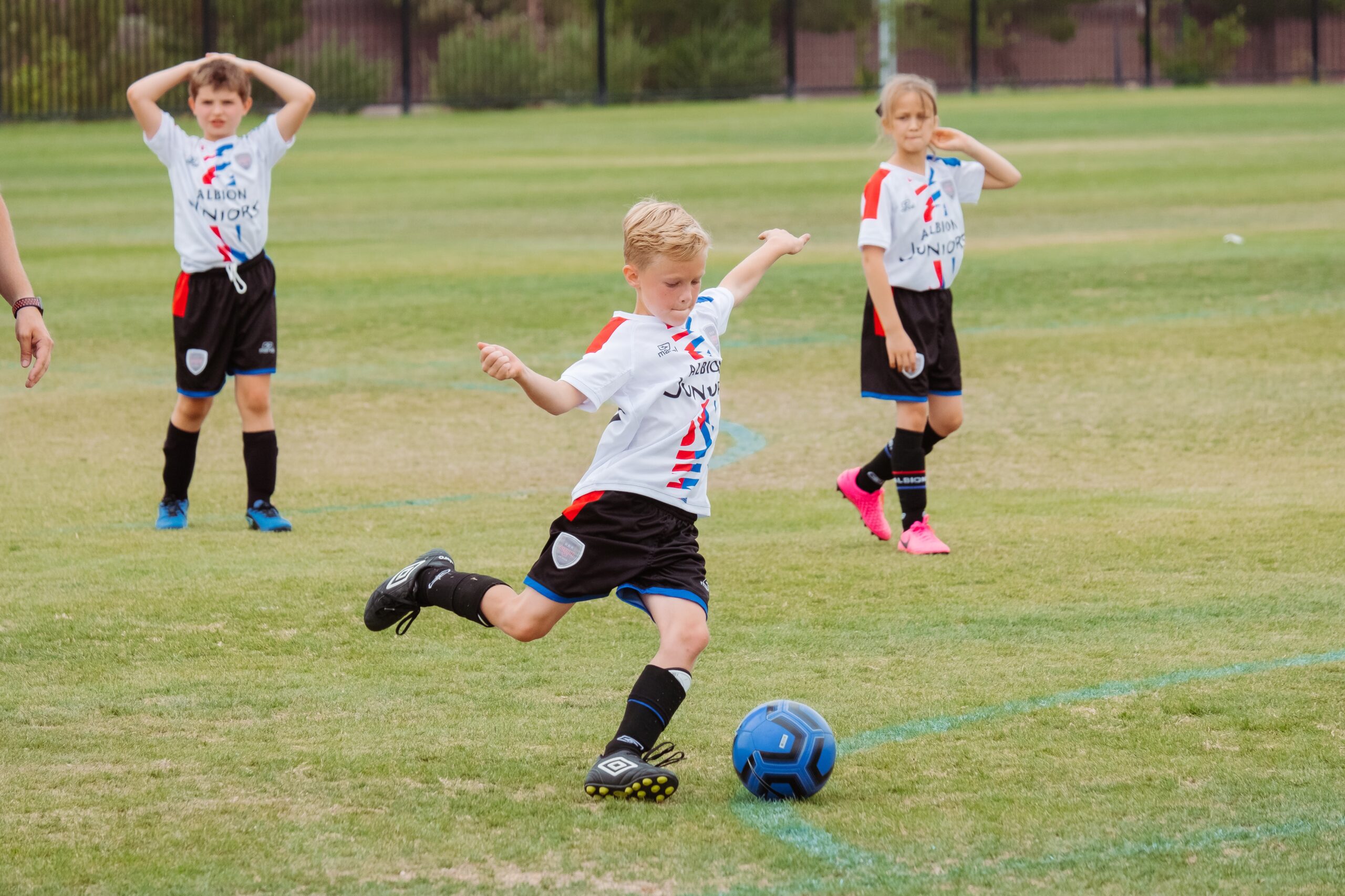
Now the typical age I would say is around 5/6.
So even though I started at 9.
That is still crazily regarded as quite late.
However, what is regarded as a good age to start will depend on what the goal is.
If my parents were aiming to get to push for a Professional level and get signed to a football team.
Then that would be considered too late.
However, if the intention was just to get me out at the weekends doing sports and socializing with friends.
Then that is completely fine.
So as you can see there is no specific age limit.
However, the reason why I would have been classed as late.
Is because the earlier someone starts playing.
The quicker they can start that development of becoming a footballer.
It’s for this reason that football clubs also try to pick up kids.
Younger than the kids even know what a football career consists of.
To join their academy.
So they can develop them.
But also so they have a wide range of kids which they can analyze and work out who is special.
And who isn’t?
Is There an Age Limit to Become a Professional Footballer?
So if we flip this.
The later you start, the fewer opportunities you will have in becoming a professional footballer.
If that was your goal of course.
For example, most scouts will be sent out to look for players who are in junior football.
While there is no limit on the age in which you can get scouted.
Since scouts look for potential.
And not necessarily your current ability.
It gets harder as you get older.
However, that doesn’t mean that players don’t start late, and get scouted before finding themselves in the Premier League.
It happens.
Just look at Jamie Vardy who is a prime example.

Who went from non-league?
To playing against Atletico Madrid in the Quater Final of the Champions League.
And let’s not forget winning the Premier League.
So if you have that goal, and you are still in your 20s or early 30s.
There is absolutely no harm in aiming big.
As while you will find yourself fighting off your body.
Way more than when you were younger and able to run all day long.
The only thing that is in the way is your dedication and work ethic.
To give you another good example of this is Zlatan Ibrahimovic.
He played well into his 30’s.
In fact, he finally called time on his career aged 40.
However due to his tremendous work ethic and discipline to keep himself in the best shape to play.
While constantly working to out-perform, at an age that some would class way past the peak.
He was able to perform to a very high standard.
To the point where it was hard to see much decline from him.
Until perhaps his final season, where he had to retire due to injuries.
Factors to Consider When Starting a Football Career Later
Now instead of getting down thinking ah I am too old to start chasing a football career.
First things first, snap out of it.
Negative thinking is only going to make it harder.
Instead, you want to look at all the factors that are needed for a footballer to perform.
And then look at where you stand with each of these.
I am talking about:
- Physical Fitness and conditioning
- Skill Level
- Opportunities and pathways
Of which for all three they are within your control.
Physical Fitness and Conditioning
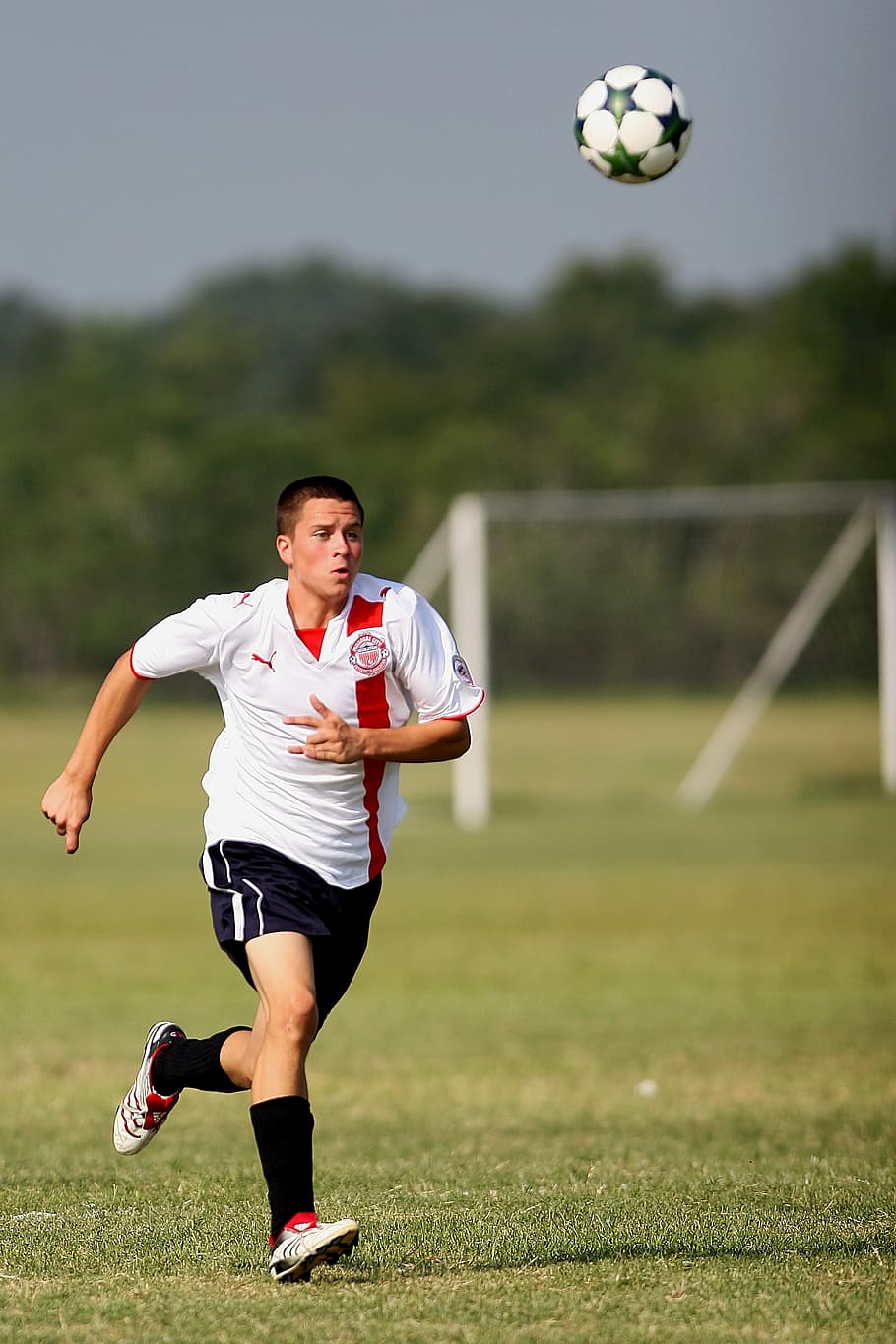
To start with you have physical fitness and conditioning.
I would be lying if I said that being out of shape, is still fine.
As while you could probably get a few minutes.
Down at your local 6-a-side team.
If you want to play out 90 minutes week in and week out.
Then you will need the physical levels to do so.
The good news is that with a proper regime, you can improve this pretty quickly.
That is if you’re not at the stage you believe you need to be.
You can work on your endurance, by going on runs around your area.
Or even better using a treadmill at your local gym
You can also work on your aspects such as your strength and agility using the gym too.
To do this you can pick out strength training exercises as well as ones to help you with your balance.
The former of which was something I had to work on.
Even years into my footballing career.
Mainly because I was tired of being outmuscled in 1 v 1’s on the pitch,
Another thing you can do is flexibility exercises.
Yoga can be great hear, to fully stretch out those muscles and keep you flexible.
Something I am sure players like Cristiano Ronaldo do to keep so agile at the ripe age of 38.
As if you want to play football, especially in later years.
This aspect is very important.
Lastly, you have to diet.
This goes hand in hand with your fitness routine.
As just doing one of them.
Without the other.
Will just prove counterintuitive.
So you want to be eating healthily.
You could even copy the food plan in which top footballers follow.
This will mostly be a diet rich in lean proteins.
Carbohydrates.
Fruits
And not forgetting of course vegetables.
This gives your body power, with all the necessary nutrients.
Aiding recovery of your muscles too.
Out of the three aspects I will be talking about.
Physical fitness and conditioning is probably the most controllable.
As reality is that it all comes down to discipline.
You control that, then you can work on the other two areas.
Which will you get you that step further from becoming the footballer that you want.
Experience and Skill Level
Experience and skill level is going to be key.
Especially the later into your life you are.
It doesn’t mean it’s all over.
Especially if you just want to Sunday League team to play once a week for.
It just means you will have some catching up to do.
So these are some factors to take into play, that will dictate how much work you need to put in:
– Prior experience: Your prior experience will have an impact, as through playing you learn how to play the game and have a basic knowledge in regards to skills.
– Technical skills: Developing skills like dribbling, passing, shooting, and ball control is essential for competing at a higher level. Ongoing practice and training can help improve these skills.
– Tactical understanding: Understanding game tactics, positioning, teamwork, and strategies is important for players aiming to compete at a higher level.
– Physical fitness: Maintaining good physical fitness is crucial for players of all ages. This includes cardiovascular endurance, strength, agility, and flexibility.
– Adaptability: Being able to adapt to different playing styles, formations, and roles on the field can give players an edge, especially against younger opponents.
Now if you improve each of the above.
In order to get your experience and skill up, then you can consider doing the following:
– Join a football team locally however not just anyone. You want to choose a team that aligns with your ambition. If you want to take football seriously then I don’t recommend not doing what I did, by joining a team that didn’t care too much about football.
– Get advice from professional coaches in the game who know the game inside and out, to do this you can join football clinics or camps, these will give you guidance and point you in the right direction.
– Work on improving your technical skills both in training and outside of it, by doing dedicated practice as well as potentially integrating a 1 on 1 coach if need be.
– Make sure you stay consistent with training, are eating the right foods, getting at least 8 hours of sleep when not on the pitch to keep yourself in the best shape.
Opportunities and Pathways
Now with you either starting that journey of putting in the work.
Or whether you have been doing so already.
The next step is to see what’s out that.
With football a massive industry, what comes with that is tons of opportunities to go down.
Of which going through the right doors and meeting the right people.
As well as of course showcasing your talent.
Can unlock new doors for you.
That could see you potentially getting scouted for a football club.
With the potential of earning a contract.
Now again no matter what age you are.
This is all within your realms.
As teams will sign you if you bring value to them.
But if you are starting from the ground up.
Then the best place to start is by joining an amateur league.
Or perhaps a semi-professional league like mine.
Just to get on the board and start essentially advertising yourself.
By joining a club.
Which by the way, may cost a few depending on who you join.
You can get access to the match game experience.
Where you can continue improving your skills in an 11 vs 11 competitive environment.
There will also likely be training sessions during the week for you to attend.
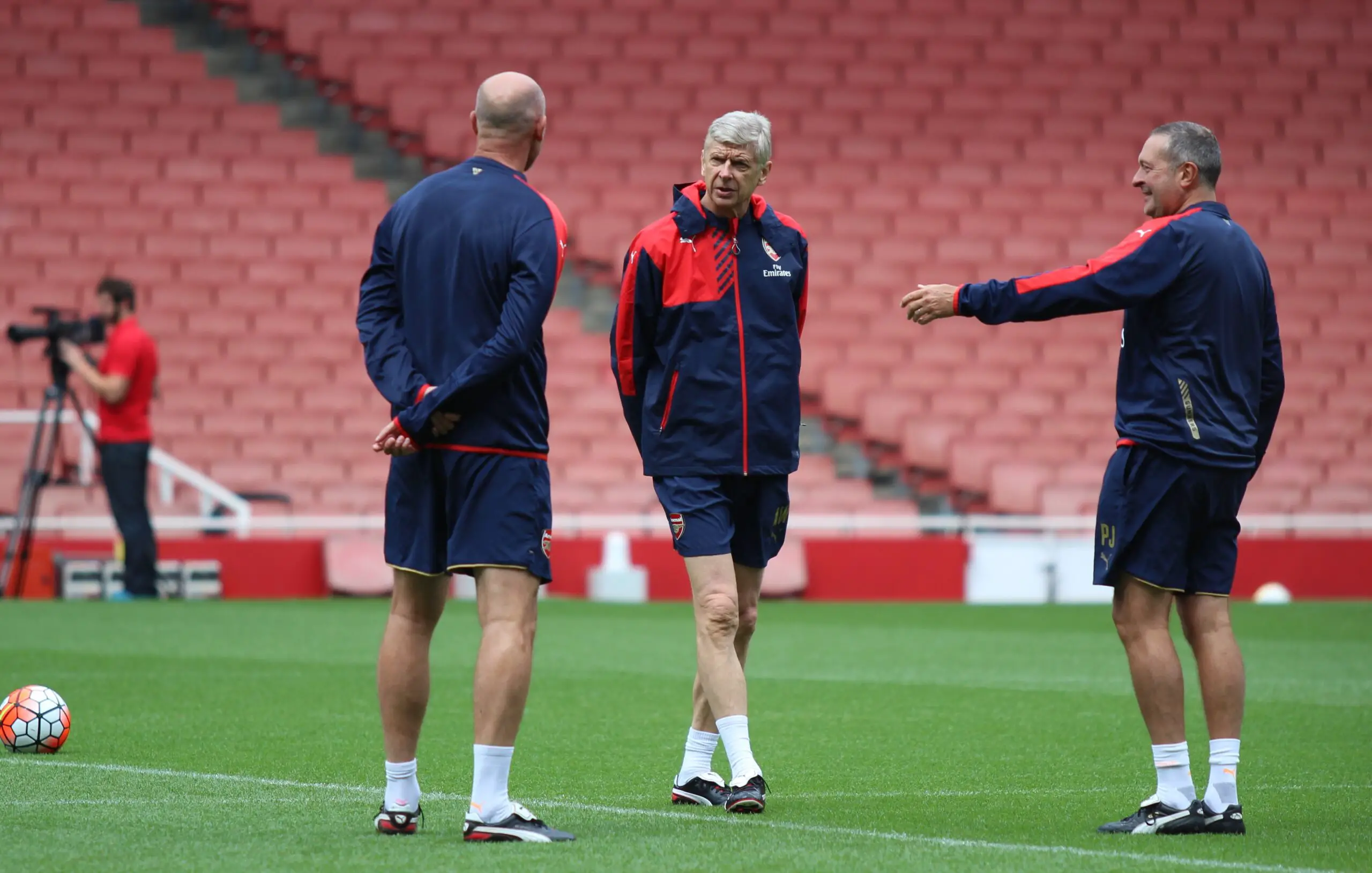
So you, therefore, have access to a coach.
It will help you stay in shape.
And aid you with your technical skills.
Now with this.
As long as you are playing for a team in a competitive league.
Of it doesn’t matter too much what level it is.
You will have eyes on you.
You won’t know whos watching of course.
There may be scouts attending your game, completely disguised.
So as long as you stay dedicated and persistent to becoming a footballer.
Seizing each opportunity that comes your way.
It will only improve your chances are getting attention and moving up that football ladder.
Mental Determination and Commitment
There will be times during your football career.
Where you will think negatively.
Maybe douting the process.
Or think you don’t have what it takes.
While this is somewhat normal to have doubts.
If you want to have any chance of making it.
You want to fix this while also being as committed to football as possible.
As there is no point in signing for a team.
Only to turn up to a training session once a month.
And play a few of the games in a season.
Now moving back to the mental side.
You want to basically develop a positive mindset.
This goes for off and on the field.
If you make a mistake in a game, brush it off and learn from it.
This is what all pros do.
If you struggling off the field.
Maybe you don’t like the level you are at right now.
Just remember that this a journey and there isn’t necessarily a massive rush for you to get to where you want to be.
Staying dedicated and patient during this process, is ultimately what is going to get you success here.
Challenges Faced by Late-Bloomers
Now if you are like me, you may have got into football late.
But even if you are not and started playing a few years or even 10 years later.
It’s not the end of the world.
It only means you need to work harder and make up for lost time.
However, saying that we cannot ignore that every day the competition in football is getting bigger.
With every week a new 16-year-old fresh out of the academy makes their debut for the professional side.
So while you will have various obstacles, such as physical demands, injury risks and younger players.
There is still a way to go about this and come out on top.
Competition from Younger Players
With every year that you get older, you will face more and more competition from younger players.
Of which unless you look after yourself will get harder and harder.
However just because you have them to compete with.
That doesn’t mean that it makes them automatically better.
After all, I have played in league games for my local side where some of the opponents were in their 40s.
And age I would have never guessed at first with the way they move around the field.
So what this shows is that with the right strategy in place you can definitely keep up:
1. Adapt your playing style: When you’re younger your speed and energy can make up for other areas of the game, sometimes even your technical skills. However, has you get older you lose the former making skills and understanding of the game more important. As a result, you want to use your intelligence and skills to outsmart opponents.
2. Physical fitness: While as I alluded to above, younger players may have the capacity to reach better stamina and speed levels. It doesn’t mean that one you can’t keep up by staying on top of your own fitness and playing the game smarter. You could have a team with the most energy and speed in the world, but if they come up against a team that is very precise with tactics and moving the ball around they would struggle.
3. Embrace your strengths: Work out what sets you apart. Maybe that is having knowledge and leadership qualities that other players may not have. If so utilize these attributes to enhance team cohesion and provide guidance to teammates.
4. Be mentally resilient: I can’t say I am looking forward to playing against teenagers when I approach the end of my career. However, I know when it does, how important it is that I maintain mental determination and self-belief which you will want to do. This will allow you to focus more on your own progress and constantly strive to improve.
Physical Demands and Injury Risks
While there is nothing holding you back when it comes to discipline, consistency and dedication to staying on your best game in football.
When it comes to football, the physical demands and injury risks can be rather brutal.
To the point where if you get the wrong injury at a bad time, it can be hard to bounce back from it.
It’s why we have seen so many professional footballers who have experienced frequent injuries having to retire in their late 20s and early 30s because of it.
This is why as you get older it is very important to take care of yourself and not overplay, to prevent yourself from doing long-term damage.
Less Time to Develop Technically
The journey of many footballers.
Mostly pro ones.
Starts early meaning they get a natural progression through every footballing stage.
Setting them up for kids, youth, teens and finally adult football.
So if you find yourself in your early 20s for instance you will be jumping straight into the latter.
Meaning all those years of honing down your skills for some.
Would need to be made up by you.
This can be done, if you have the drive to stay focused and efficient in training.
Now depending on what exactly you want to get out of football.
Will dictate how intense this quest may be.
As if you want to simply play casually for a bit of fun locally.
Then you won’t really need to put in too much work.
And could probably pick up what is required to play adult football in a year or two.
However, if you want to progress high up the footballing ladder.
Then you will want to do an intense course consisting of rigorous training sessions.
In order to get each skill required to play football at a high level, right to the top.
So again it’s essentially reinforcing that point of being dedicated to the cause, in order to achieve the goals you want within the sport.
Tips and Strategies for Pursuing a Football Career Later
Now before we finish of here, I do want to touch upon some strategies for pursuing a career in football.
If you have come across the sport late.
Has having played the game for over 15+ years I have acquired a lot of knowledge on what is needed in order to reach certain levels within the game.
So let’s go over a few of these:
Find the Right Training Program and Coaching
The right training programs and coaching will be imperative to your success.
I have played for clubs not recently.
But back in the past.
Where the coaching was lazy, mainly consisting of matches.
And the training wasn’t drills that concentrated on areas to improve you.
So as a result I would recommend looking for serious football teams.
Where the coaches are experienced and the players in the team have the same vision as you, in terms of wanting to progress up the ladder.
This will help you stay competitive but also create a bond where everyone is aiding each other’s growth.
I would also look for a program that is tailored to you in order to help you develop and improve your skills based on your specific needs and goals.
Something else that is well worth looking into is strength and conditioning training, injury prevention strategies, and nutrition guidance.
This will ensure your physical and mental well-being is looked after.
So that is what I would recommend.
Again you want to make sure your own goals and aspirations align with the programs and teams you are looking to join.
As from what I have learned through my own footballing journey, is that it’s doing that which will help you get on the right track.
Plus it honestly motivates you to play football, and if you are surrounded by the right things.
Network and Showcase Your Skills
Networking is important when progressing with anything you are doing.
Want to work up the work ladder, then connecting with others can land you in higher spots.
The same goes for football.
As while many people already know this.
But a lot of the players who are at a professional level have been aided.
Whether that be from having a family that are friends or members of a club.
Or teams giving contracts to players, because they have some connection to them.
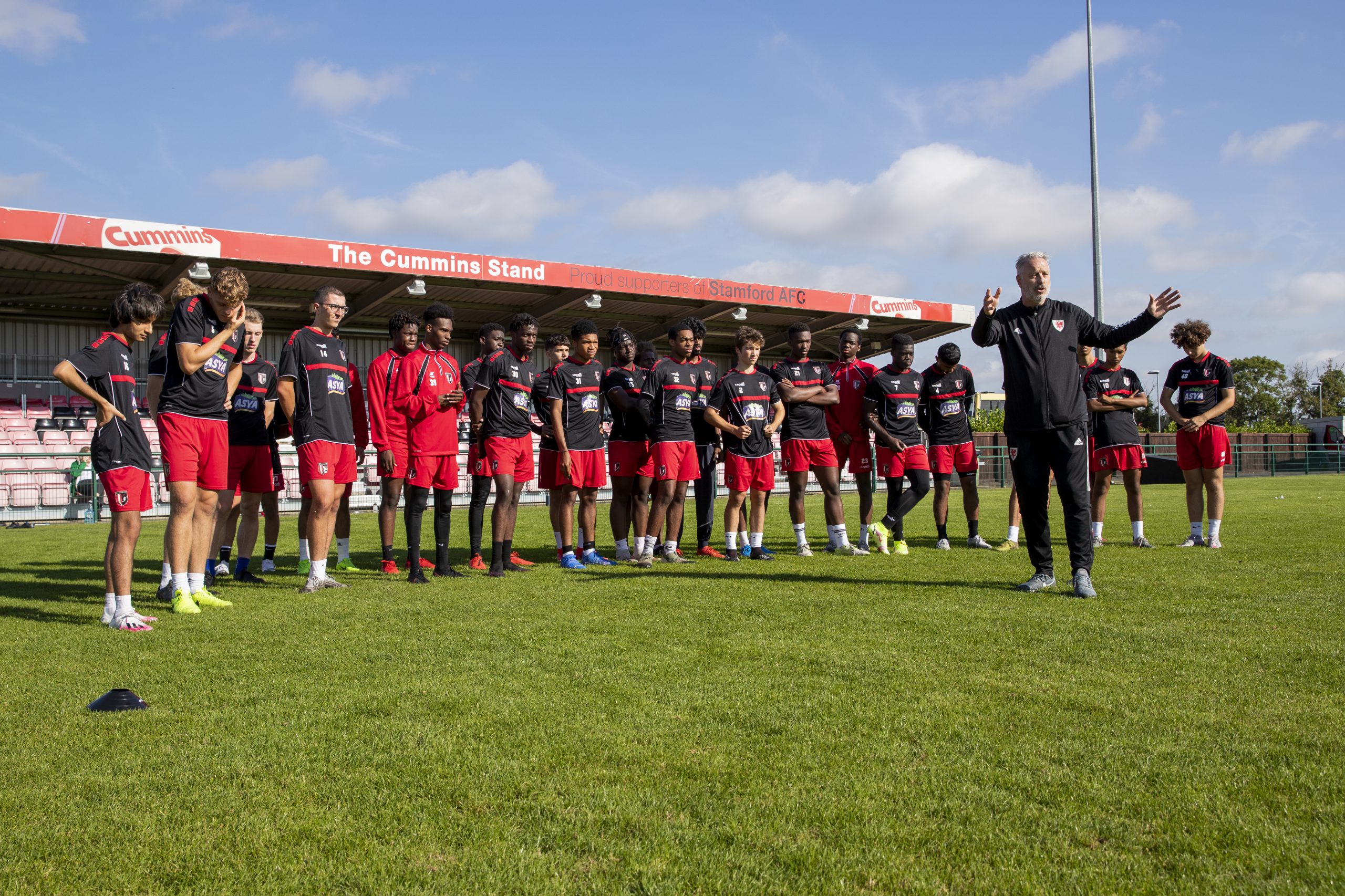
When I got my first trial back when I was around 14 years old.
I didn’t get it through being scouted.
Instead, it was because one of my mate’s friends at the time was good mates with an EFL manager.
As a result, I was able to get a 4-week trial.
Where I played with an academy, and in which my skills were put to the test.
So while it may be hard to know where to start.
Try to reach out to people within football to build connections as you grow as a footballer.
Whether that be getting an agent.
Or playing for multiple teams to get as much exposure.
Stay Dedicated and Persistent
A career in football isn’t just going to land on your feet.
No matter what level you are.
If you are yet to play football yet.
Then be warned that if you do join a team.
You may not even be starting week in week out.
So what I am trying to say is that no matter what level you are at.
You are going to need to show dedication and persistence to the cause.
Do this as well as practise regularly.
It’s going to make progress in the sport almost impossible.
You will either be beating or matching the work ethic of players around you.
Set Realistic Goals and Expectations
Last and not least, make sure you set yourself goals.
Now while it’s important to set realistic goals.
You never want to limit yourself.
So if you can make a target and action plan to go with it.
It will make it much easier to achieve.
In fact, it could make it 2x or even 3x likely for you to achieve it.
So set specific goals you can achieve.
Include short and long-term ones.
With those short-term goals helping you build towards the long ones.
Stay disciplined, and realise why exactly your doing this.
And of course, get yourself out there as much as possible.
Don’t just stay in your shell.
Frequently Asked Questions
What age is considered too late to become a professional footballer?
According to experts, the age considered too late to become a footballer is generally around 30. Players below this age can still pursue a professional career, but their career may be shorter compared to those who started earlier.
What is the average age for players to go professional?
The average age for players to go professional is around 18-19, as they have developed the skills and experience to compete at higher levels.
Is it possible to become a professional footballer at 17 years old?
Yes, it is possible to become a professional footballer at 17 years old. Some players have started at 17 and gone on to play for big teams, but it will require focus, will, persistence, consistency, and hard work.
When does a player’s athletic performance start to decline?
Most players begin to lose their athletic performance after the age of 33, making it difficult to keep up with the high intensity of the sport.
What are the key factors in developing as a professional soccer player?
Development as a professional player starts at a young age, with major clubs recruiting players as young as 12 years old. Supervised coaching and training are important in the development of young players.
Is starting football at the age of 7 considered too early?
The perfect age to start playing football is 7, as children can learn the fundamentals and grow with the sport. Starting early increases the chances of becoming a professional player.


 How To Be Like Haaland (Complete Guide)
How To Be Like Haaland (Complete Guide)